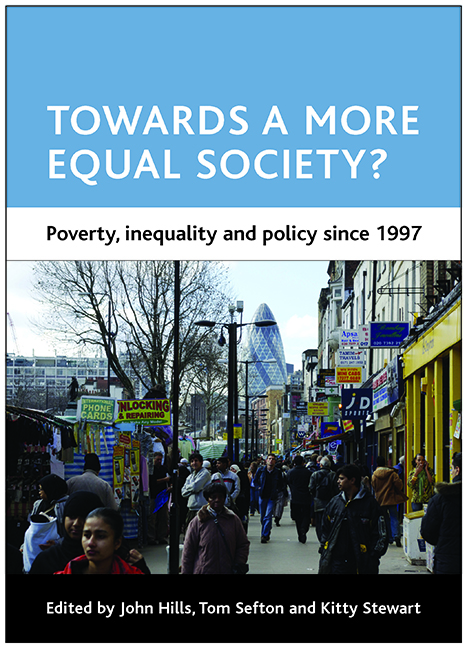eight - Pensions and income security in later life
Published online by Cambridge University Press: 22 January 2022
Summary
Introduction
When New Labour came to power in May 1997, an estimated 2.9 million pensioners were living in ‘poverty’ (DWP, 2008f). The 1997 election manifesto restated the party's commitment that ‘all pensioners should share fairly in the increasing prosperity of the nation’ and promised to ‘set up a review of the central areas of insecurity for elderly people: all aspects of the basic pension and its value, second pensions including the State Earnings Related Pension Scheme, and community care’ (Labour Party, 1997, p 27). Just two months into the new administration in July 1997, the new Secretary of State, Harriet Harman, announced a review of pensions. The terms of reference for the Pension Provision Group were to look into concerns of today's pensioners and develop plans for a second pension scheme over and above the basic state pension (PPG, 1998). The next 11 years witnessed a transformation of the pensions landscape, starting with the Green Paper A New Contract for Welfare: Partnership in Pensions (DSS, 1998) and culminating in two White Papers – Security in Retirement (DWP, 2006a) and Personal Accounts: A New Way to Save (DWP, 2006b) – leading to the 2007 Pensions Act and 2007/08 Pensions Bill. The reforms amount to the most radical overhaul of the pensions system since 1948, with no part of the system being immune to change – from the safety-net ‘floor’ of means-tested benefits for pensioners, through to the ‘first tier’ of the basic state pension, the ‘second tier’ of publicly provided second (earnings-related) pensions, to the top floor of private provision of occupational and personal pensions.
In 1999, New Labour set out its blueprint for tackling poverty and social exclusion in Opportunity for All (DSS, 1999). Among the priorities highlighted were the twin goals of (a) ensuring that more of tomorrow's pensioners can retire on a decent income and (b) tackling the problems of low income and social exclusion among today's pensioners. This chapter discusses New Labour's policy agenda in the area of pensions and then assesses the extent to which this has been successful in improving the living standards of the poorest pensioners, now and in the future. We start, though, by considering the background and inheritance faced by New Labour, including the policy legacy and demographic context that prompted and helped to shape the government's pension reforms.
- Type
- Chapter
- Information
- Towards a More Equal Society?Poverty, Inequality and Policy since 1997, pp. 157 - 178Publisher: Bristol University PressPrint publication year: 2009



